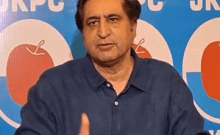Muslim nations around the world have decided to join forces and set up a military coalition to combat terrorism. There has been increasing pressure on Muslim nations, especially the rich Gulf states, to do more to fight against the Islamic State (Isis) militant group.
The alliance, led by Saudi Arabia, will see 34 Muslim nations join forces to protect the Islamic nation from the evils of all terrorist groups and organisations. Majority Shia Muslim Iran was conspicuous by its absence from the list of nations.
A statement published by Saudi Arabias state news agency SPA said more than 10 countries, including Indonesia, the worlds most populous Muslim country, have expressed their support for the alliance and will take the necessary measures. A joint operations centre will be set up in Riyadh to coordinate and support military operations to fight terrorism and to develop the necessary programmes and mechanisms to support these efforts.
The statement said that appropriate arrangements will be developed for coordination with friendly peace-loving nations and international bodies to support international efforts to combat terrorism.
The joint statement was accompanied by a rare press conference by Saudi Arabias deputy crown prince, second deputy prime minister and minister of defense, 30-year-old Mohammad bin Salman Al Saud. However, he failed to give any insight on how the military cooperation aims to undertake its fight against terrorism.
Salman told reporters on 15 December that the campaign would coordinate efforts to fight terrorism in Iraq, Syria, Libya, Egypt and Afghanistan but did not say how this will be carried out. There will be international coordination with major powers and international organisations ... in terms of operations in Syria and Iraq. We cant undertake these operations without coordinating with legitimacy in this place and the international community, he added.
When asked if the new alliance will focus on just fighting IS (Daesh), Salman said the coalition would confront any terrorist organisation that appears in front of us, including Isis.
Saudi Arabia and its Gulf Arab neighbours have been involved in a nine month warfare with Iran-allied rebels in neighbouring Yemen. A ceasefire however is set to take effect in Yemen on 15 December, alongside United Nations-backed peace talks. The joint statement on the military alliance to fight IS may be an indication of Saudi Arabias decision to turn its attention back to pressing conflicts at the north of its borders.
IS has vowed to overthrow the monarchies of the Gulf and have launched a series of attacks on Shia Muslim mosques and security forces in both Kuwait and Saudi Arabia. The joint statement said the terrorism and its atrocities constitute a serious violation of human dignity and rights, especially the right to life and the right to security. It said: Terrorism cannot be justified in any way, and hence it should be fought by all means and collaboration should be made to eliminate it.
It vowed the protect nations from the evils of all armed groups and terrorist organisations- whatever their doctrine or title - which spread killing and corruption in the world and are designed to terrorise the innocent.
The 34 nations include:
- Jordan;
- United Arab Emirates;
- Pakistan;
- Bahrain;
- Bangladesh;
- Benin;
- Turkey;
- Chad;
- Togo;
- Tunisia;
- Djibouti;
- Senegal;
- Sudan;
- Sierra Leone;
- Somalia;
- Gabon;
- Guinea;
- Palestine;
- Comoros;
- Qatar;
- Cote dIvoire;
- Kuwait;
- Lebanon;
- Libya;
- Maldives;
- Mali;
- Malaysia;
- Egypt;
- Morocco;
- Mauritania;
- Niger;
- Nigeria; and
- Yemen.

















